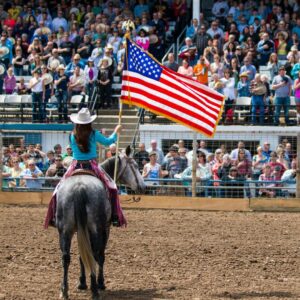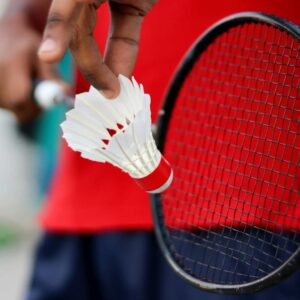Kaitlin Bounds: From prejudice to Paris
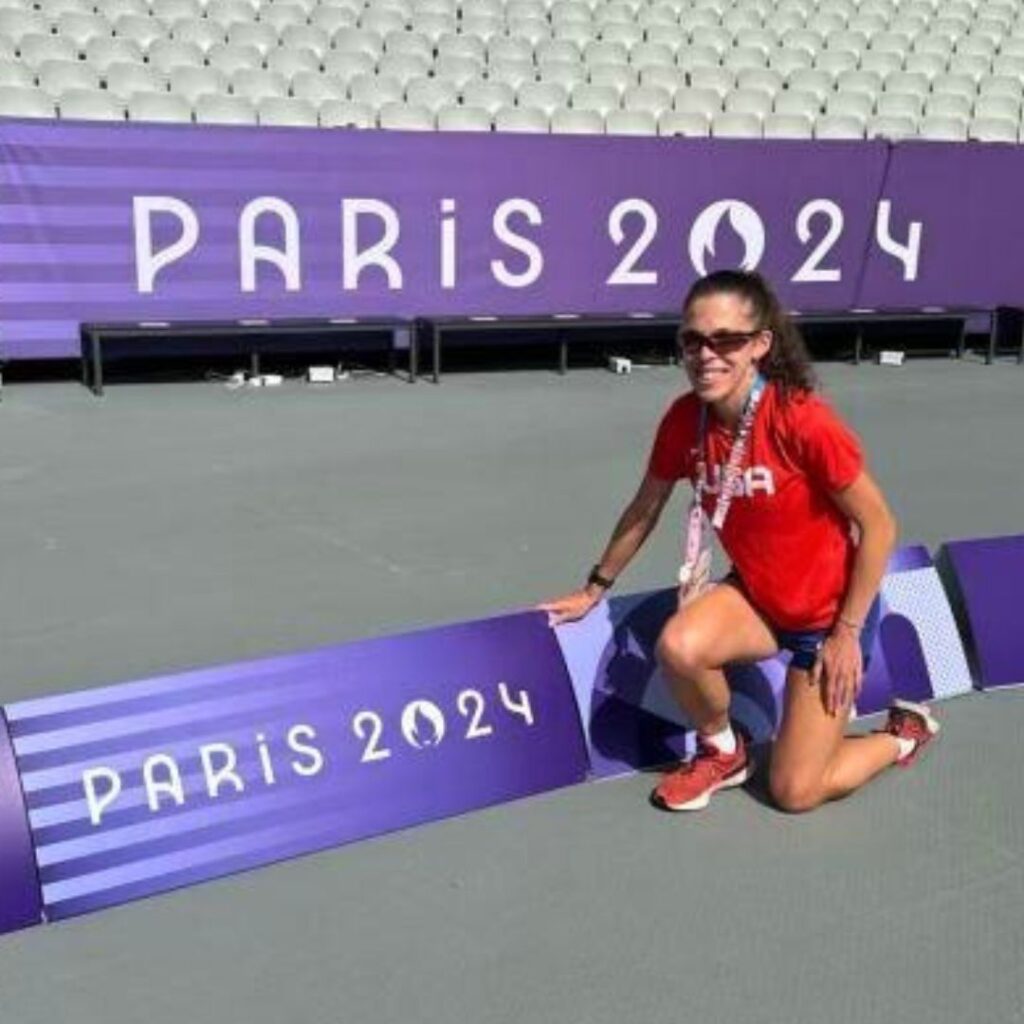
Kaitlin Bounds had a 2024 to remember, achieving her dream of representing the USA at the Paralympic Games.
She smashed her goal, and with it the national record in the women’s T20 1500m, as she clocked a personal best of four minutes and 40 seconds around the Stade de France in Paris.
“I always aim for goals and to be faster than the last time I did,” she told Spautism. “Sometimes when I find out that I’ve ran faster I scream with sheer joy and shock because I didn’t know I could go that fast. I don’t know what my full potential is usually.”
There is something that she has known, though, and for several years – that she could compete at the Paralympics. It was a journey that began after watching autistic runner Mikey Brannigan on TV competing in Brazil in 2016.
“I didn’t even know about Paralympics until then. I was sitting at home and saw Brannigan – an autistic young man – on the TV.
“I saw there was a place for me and I screamed to my parents from the bedroom that there is a young man with autism just like me going to the Paralympics. That set off my journey to go to the Games.
“I switched coaches recently to help get me to the next level, and she has been teaching me how to do my own pacing and to be more consistent. We do a lot of sprinting, 400m and 800m, sometimes mile repeats, some things that I didn’t know you could pace for. I have always gone fast, fast, fast, and never really learned how to control my speed and power until this year.
“This will help me moving forward, but it’s still really hard for me to manage that. I never had the mindset of slowing down, take it easier, and actually enjoy it. I’m still battling that today as my mind is fighting my body – the need to go faster versus the need to stay steady or I will be tired at the end.”
Kaitlin loves to run, and her first ribbon in the 800m when she was a young teenager sparked something inside her. It was her one chance that she had been waiting for.
“That proved to me that I could actually run, I could actually do this, and from that point on I haven’t stopped running since.
“I remember when I was running around in a gym class and a coach named Rick Correia saw me and said ‘hey Kaitlin, why don’t you try out running? You might actually like it.’ I was like ‘are you nuts? People are going to make fun of me; people are going to pick me last.’
“My parents even thought this was a wild idea, but the next year we decided to try it. A lot of the things I was afraid of actually happened. People didn’t want me on their teams and they thought I was handicapped with autism – the usual stereotypes of banging your head on the wall and being a nuisance, being a problem child for the others.
“Coach Correia said people should give me a chance. I’m really thankful for all the years he’s been with me as my friend, my coach, and my science teacher. He doesn’t always know how much he has impacted my life.
“He kept a record of all my times. I started running my very first mile around 16 minutes and I know for some people that’s not good, but I knew nothing about running – I was a slowpoke. And by the time I had got my first ribbon, I had finally broken seven minutes.”
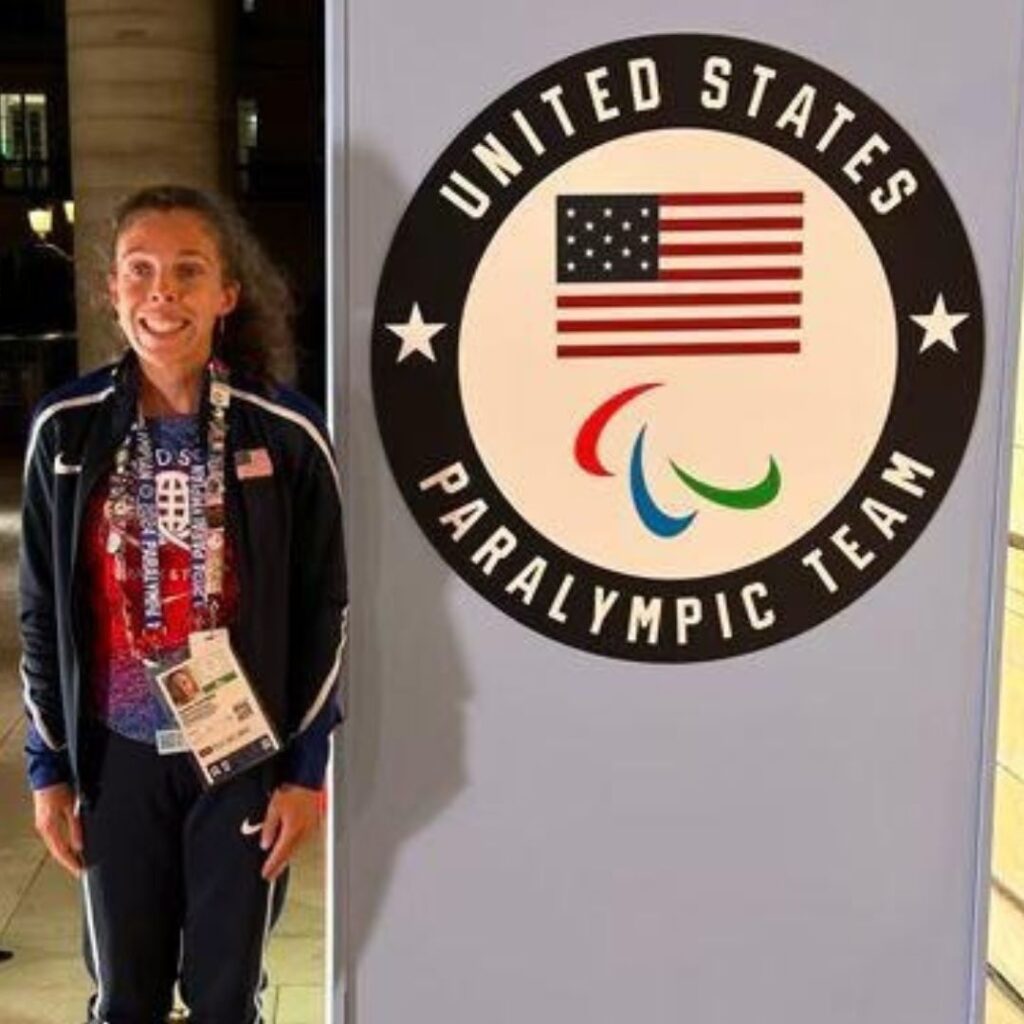
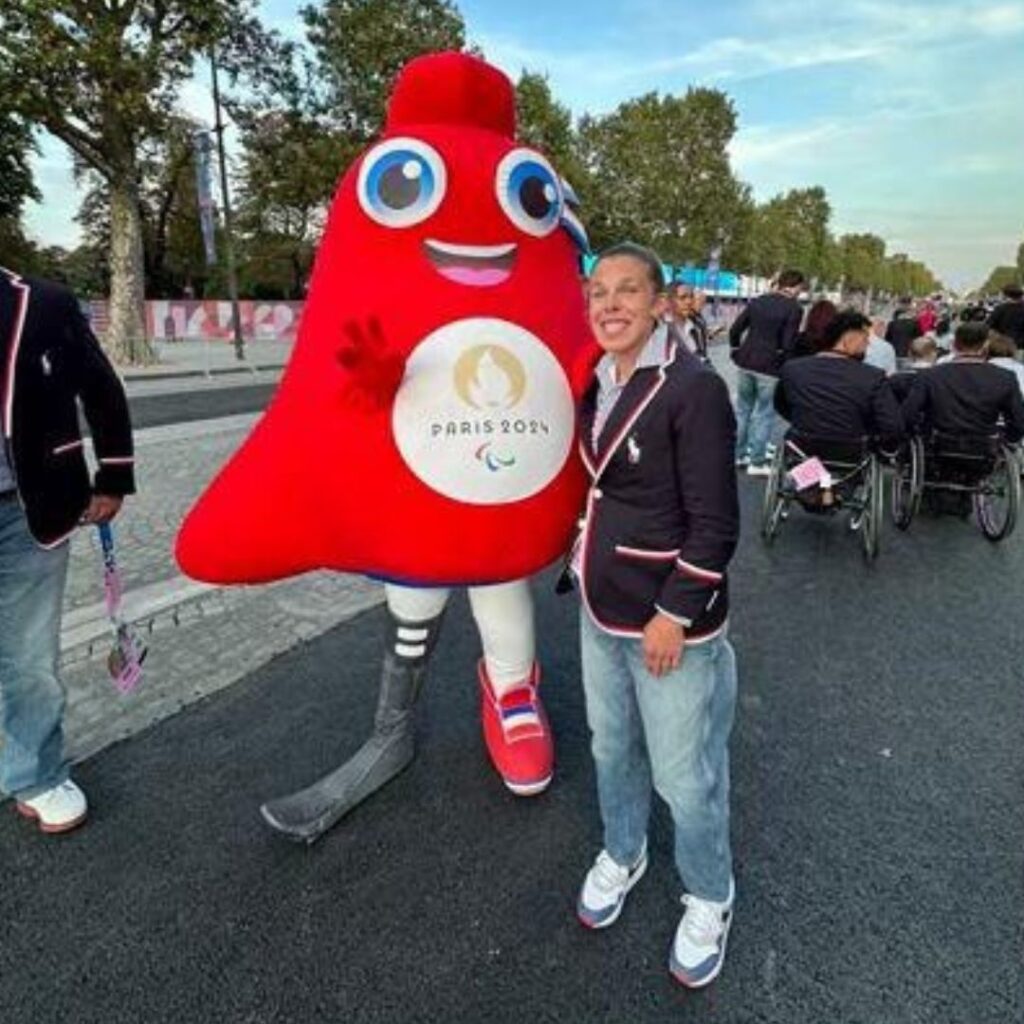
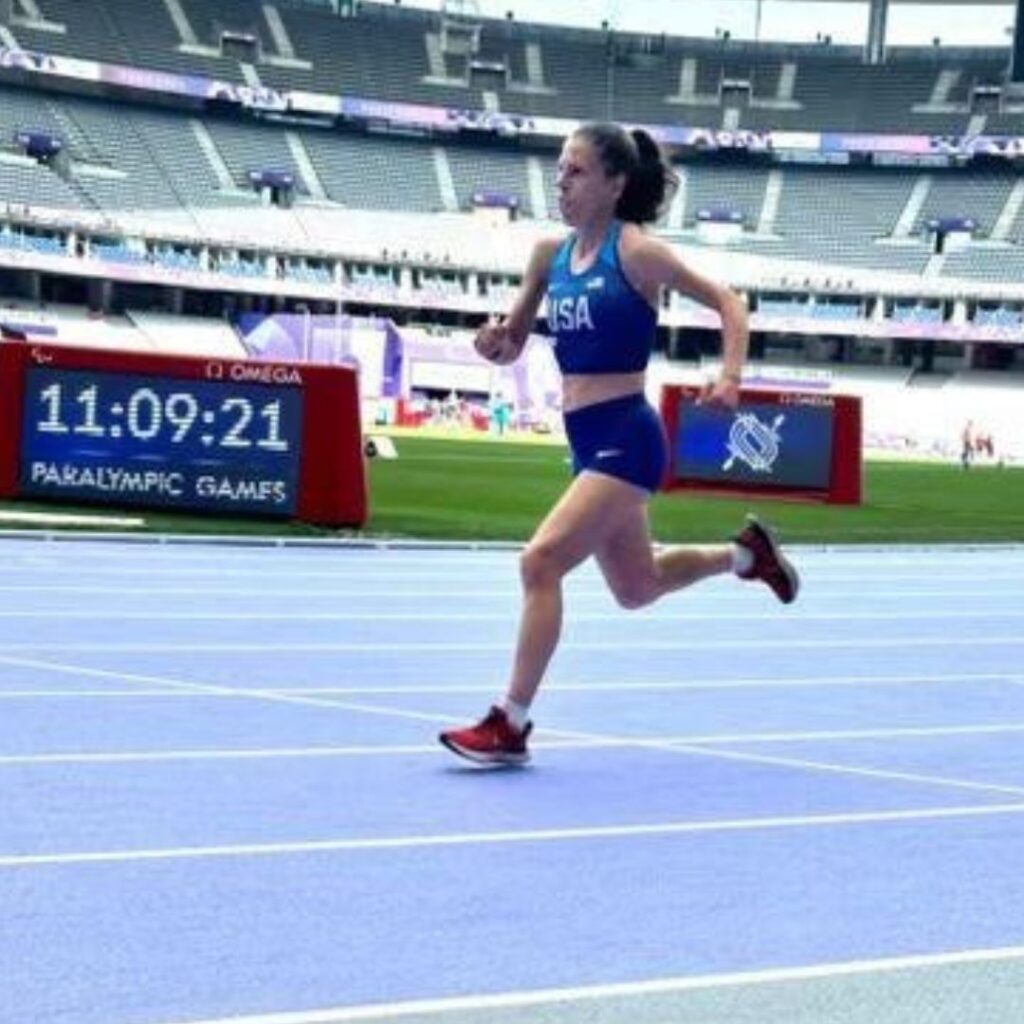
Breaking barriers is a big accomplishment, and getting to Paris took lots of work on and off the track with some arguing that the USA’s support structures towards the Paralympics are still in their infancy.
But there were more challenges to face after arriving in France’s capital, as Kaitlin caught an illness five days before her big race.
“I collapsed after a workout and I had to see a team doctor. Then I had to be moved over to the training centre to be isolated from everybody, so it affected me pretty badly.
“The day of the race I had to have a lot of medication just so I didn’t faint, and unfortunately my race did not go as well as I had hoped for. My starting position was wrong and by the time I got to the final lap my lungs had completely given out. But somehow by the end of the race I had set a US record by five seconds.
“I could not believe how big the crowds were and that really motivated me; I hadn’t seen anything like that before.
“I’m not used to people cheering for me because people in the US sneer and jeer when I beat neurotypical runners, so it was the exact opposite of what I was expecting.”
After the race, the athletes hugged each other and Ukrainian Danylina Liudmyla gifted keyrings to Kaitlin and her fellow competitors. It was a togetherness, even in the heat of competition, that made Kaitlin feel like she belonged.
“I was very happy in the village. I met lots of people and traded pins with a lot of the other athletes, so I got to learn what things were like for them in their countries. There was a language barrier between me and other countries as well so, in a way, it was a symbol of friendship and unity.”
The new experiences didn’t stop after Paris, either, as just after landing back home Kaitlin had a packed schedule.
From easing back into training – something that is new to her having usually gone straight into cross-country season – to a visit to the White House, Kaitlin received a hero’s welcome.
“It’s been really crazy here. I’m the first Paralympian to come from Arkansas Tech University, so it caused quite a buzz.
“We even went to Washington, DC, to visit the then-president, and people are coming up to me and recognising me.
I’m doing interviews and reports for people, and was honoured at a homecoming football game and it was really nice – I had never heard such a roar of applause from a crowd like that before.
“I was also asked to do a guest-speaking gig to introduce myself to kids and inspire them to be whatever they want to be. I sure do hope I inspire more people; we do not have enough men or women in my category here in the US.
“There needs to be more awareness that there is a place for people here. I was told for many years that I would never be a Paralympian and I would just always be a dreamer; it’s taken years to get to where I am and by making the team this year and going to Paris, I have silenced a lot of critics and it feels really good.”

